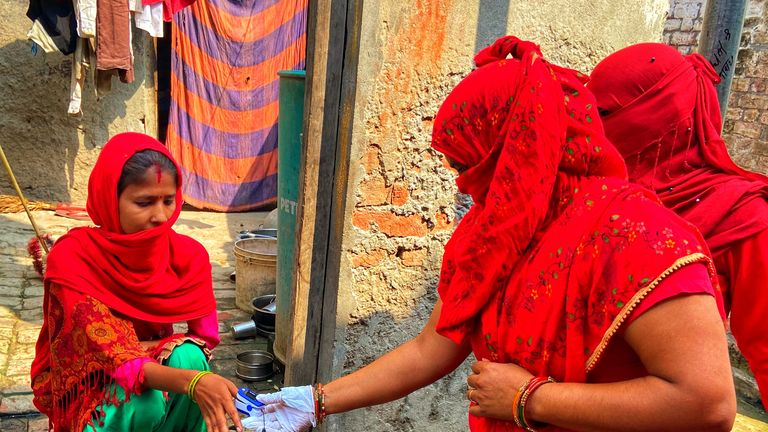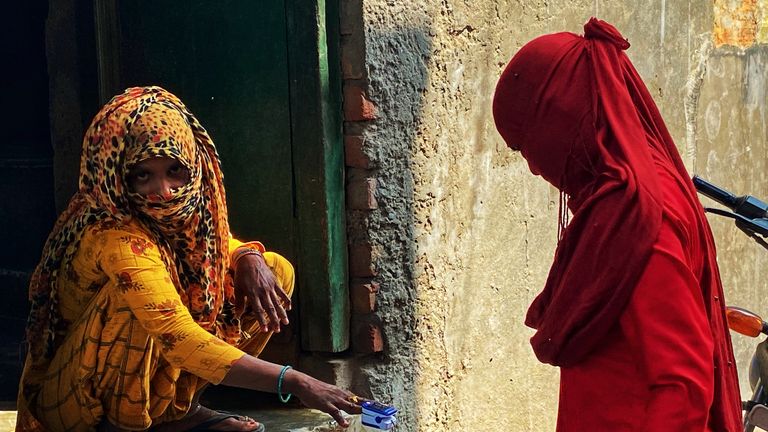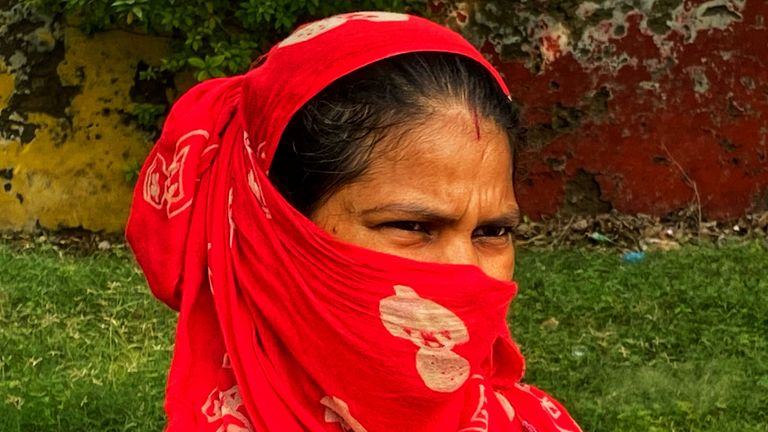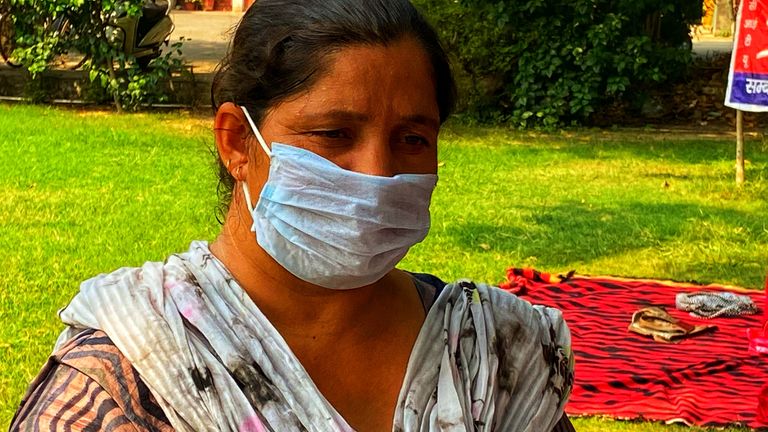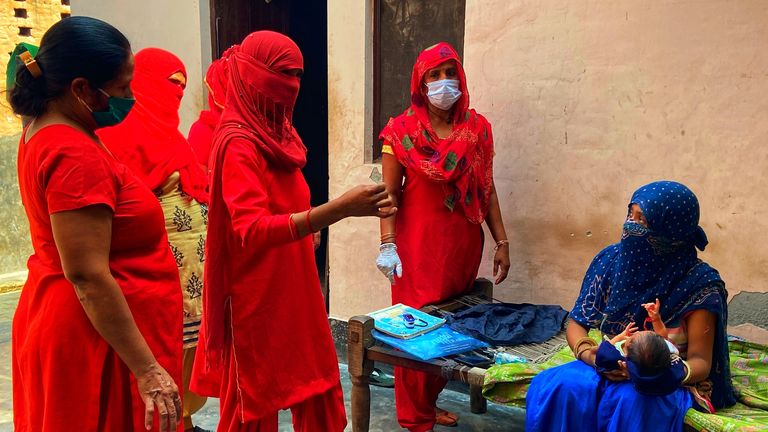[ad_1]
Health workers in India have described how they have been abused, overworked and mistreated by patients as they battle to help control the spread of coronavirus.
Kiran, not her real name, is part of the million-strong Accredited Social Health Activists better known as ASHA workers throughout the country.
A widow and a mother-of-four, she told Sky News how she has suffered physical and verbal abuse while working with COVID-19 patients.
She said: “They hit my daughter on the head with an iron rod, she had to be rushed to hospital and is still suffering.
“One woman bit me and said I would be infected too. They beat me and my son mercilessly.
“All because I tracked down one of their family members who had coronavirus.”
The ASHAs are female community health workers who work in their local communities promoting and organising health care.
Created in 2005 this all-women army, notable in their bright red or pink outfits are a crucial link between the government’s public health services and the country’s rural population.
Prior to COVID-19, they were entrusted with dozens of tasks including checks on maternal mortality and malnourishment in children, vaccinations and family planning.
Now they play a vital role in fighting coronavirus in rural India.
They have been made responsible for contact tracing and ensuring infected people quarantine.
But many have suffered attacks from those who see them as government informers who snitch on people.
Patients with COVID-19 are then often taken to poor quality quarantine facilities and their families discriminated against.
Kiran’s experience is not an isolated incident.
Sky News spoke to dozens of these ASHA workers and all had personal stories of attack and abuse while in the field.
Sunita Rani told Sky News: “While the prime minister told everyone to stay at home, we were ordered to go to every house, survey people, find out who is ill, force people to stay indoors and not to gather for which there were life-threatening attacks on ASHA workers and their families.”
Reena, an ASHA worker from Gohana, said: “I was beaten very badly by the police on my way to work. I kept telling them I am an essential worker and was helping the health services. But they kept hitting me.”
Each ASHA worker is in charge of 1,000 to 1,500 people in villages and semi-urban areas.
They check oxygen levels, monitor patients’ heart rates, screen for fever, survey and track the rural population and give advice on COVID-19 precautions.
Their mandate is to keep the country’s rural population healthy and pandemic free.
But their own health is at risk. With barely any protection they are on call day and night for a monthly salary of about £50, including the £11 for their COVID-19 work.
In some states the salary is almost half of this as they are considered volunteers with no legal status and at the mercy of the government.
Seema, an ASHA worker for seven years, said: ‘We are the frontline workers, we risk our lives and the lives of our children.
“Our children want to hug us as soon as we come back, sometimes we have no time to have even have a bath or wash up”
Many ASHA workers have got infected on the job while dozens are reported to have succumbed to the pandemic.
Ignored, mistreated and overworked they are now fighting back.
Over 600,000 workers protested across the country for better pay and protection.
At the civil hospital in Sonipat dozens take turns in their time off to show dissent.
“We are the first to face positive cases, we do it without any protection, no treatment if we fall ill, no sympathy from the government, it’s very difficult for us to work and out of sheer helplessness we are protesting”, Sunita Rani said.
India has the highest rate of infection anywhere in the world. With millions of cases the virus has spread to every corner of the country.
The worry is that in smaller towns and in rural villages the public health care system is woefully inadequate.
For decades the Indian government has spent just over 1% of the GDP on public health care.
A severe challenge by the pandemic can cause a collapse to this overstretched system and its creaking infrastructure.
While more than 70% of the population are forced to choose to private health care which is expensive, an illness can easily push a family into poverty.
ASHA workers are vital in the nation’s fight not only against the pandemic but also keeping its rural population healthy.
Now, more than ever India needs this army of women frontline workers.
[ad_2]
Source link
